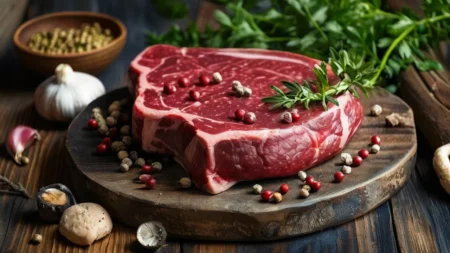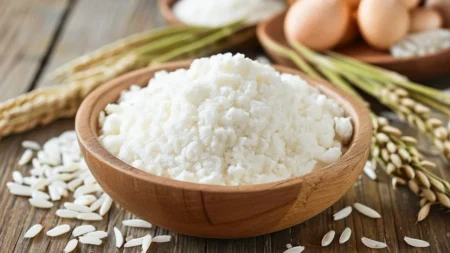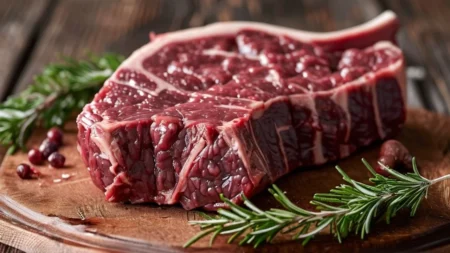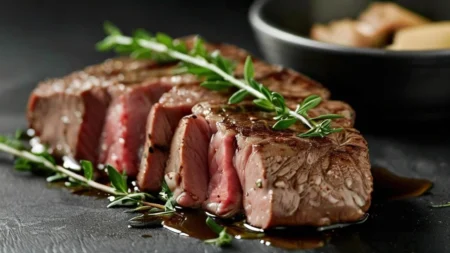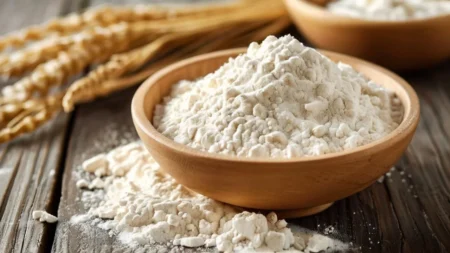Mushroom: A Nutrient-Dense, Low-Calorie Superfood
Key Takeaways:
- Mushrooms are low in calories, rich in fiber, antioxidants, and essential vitamins like B vitamins and vitamin D.
- They have numerous health benefits, including boosting immunity, supporting heart health, and providing anti-inflammatory properties.
- Mushrooms are versatile in cooking, used in soups, sauces, salads, and as meat substitutes due to their umami flavor.
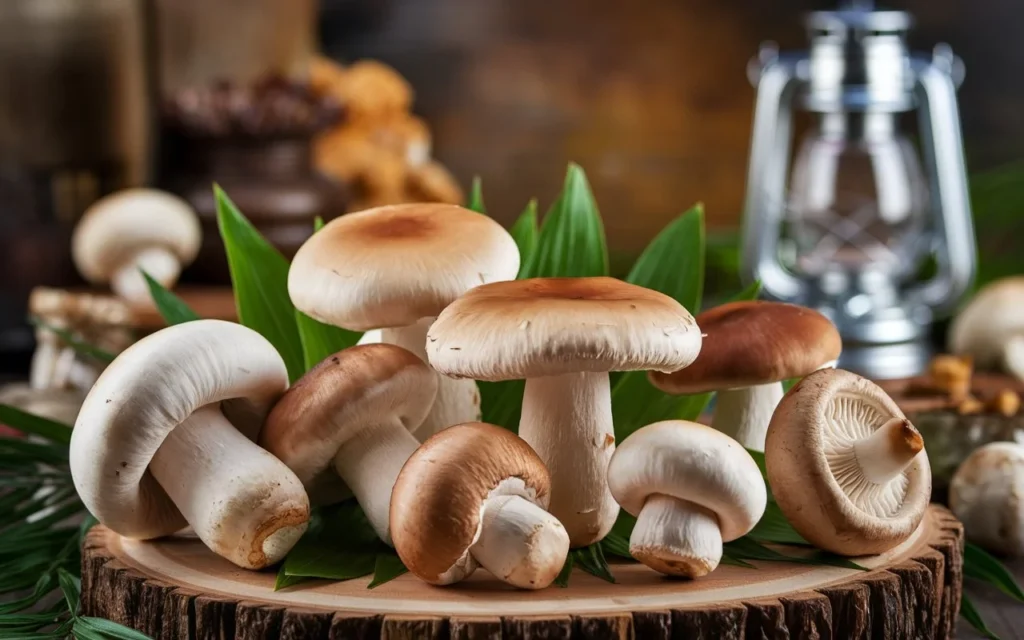
Nutritional Profile of Mushrooms
Mushrooms are nutrient-dense despite being low in calories. Below is a typical nutritional breakdown for 1 cup (96 grams) of raw white mushrooms:
| Nutrient | Amount |
|---|---|
| Calories | 15 kcal |
| Protein | 2.2 grams |
| Carbohydrates | 2.3 grams |
| Dietary Fiber | 0.7 grams |
| Fat | 0.2 grams |
| Vitamin D | 8.9 IU (22% DV) |
| Niacin (B3) | 3.5 mg (17% DV) |
| Pantothenic Acid | 1.0 mg (10% DV) |
| Riboflavin (B2) | 0.4 mg (18% DV) |
| Selenium | 8.9 mcg (13% DV) |
| Copper | 0.3 mg (14% DV) |
Rich in Vitamin D
Unlike most plant-based foods, mushrooms are a natural source of vitamin D. When exposed to sunlight, they synthesize vitamin D2, a crucial nutrient for bone health and immune function.
Health Benefits of Mushrooms
1. Boosts Immune Function
Mushrooms contain powerful antioxidants like selenium and ergothioneine, which help protect cells from damage and boost the immune system. These compounds can also reduce inflammation and support the body’s natural defense mechanisms.
2. Promotes Heart Health
Mushrooms contain fiber, potassium, and several heart-healthy compounds that contribute to reduced blood pressure and lower cholesterol levels, promoting better cardiovascular health.
3. Supports Weight Management
Mushrooms are low in calories yet high in fiber and protein, making them a great option for those looking to lose or maintain weight. The fiber helps keep you full, while the protein supports muscle health.
Types of Edible Mushrooms
There are numerous varieties of mushrooms, each with unique flavors and uses in the kitchen:
| Type | Description | Common Uses |
|---|---|---|
| White Button | Most common type | Salads, soups, sautéing |
| Portobello | Large, meaty texture | Grilled, burgers, stuffed dishes |
| Shiitake | Earthy, rich flavor | Stir-fries, soups, Asian cuisine |
| Oyster | Delicate, mild taste | Stir-fries, soups, stews |
| Cremini | Similar to white button but richer | Roasting, sautéing, stews |
| Enoki | Small, crunchy stems | Salads, Asian dishes, soups |
How to Cook Mushrooms
1. Sautéed Mushrooms
Heat oil in a pan and sauté mushrooms with garlic, salt, and pepper. Cook until golden brown for a quick and flavorful side dish.
2. Grilled Mushrooms
Marinate portobello mushrooms in olive oil, garlic, and herbs, then grill for a smoky, meaty alternative to beef burgers.
Mushrooms as a Meat Substitute
Mushrooms, particularly varieties like portobello and cremini, have a rich umami flavor and a meaty texture that makes them ideal for vegetarian or vegan diets. Here’s how they compare to ground beef:
| Nutrient (Per 100g) | Mushrooms (Portobello) | Ground Beef (80% Lean) |
|---|---|---|
| Calories | 22 kcal | 254 kcal |
| Protein | 3.1 grams | 17 grams |
| Fat | 0.3 grams | 20 grams |
| Fiber | 1.1 grams | 0 grams |
| Vitamin D | 22 IU | 7 IU |
Medicinal Properties of Mushrooms
1. Reishi Mushrooms
Known as the “mushroom of immortality” in traditional Chinese medicine, reishi mushrooms are used to boost the immune system and reduce stress.
2. Lion’s Mane
This mushroom is known for its potential to enhance cognitive function and support nerve regeneration, making it popular in supplements and brain health products.
Conclusion
Mushrooms are a powerhouse of nutrients and antioxidants that support various aspects of health, from boosting immunity to promoting heart health. They’re also versatile in cooking, providing flavor and nutrition to countless dishes.
FAQ
Q: Are mushrooms a good source of protein?
A: While mushrooms do contain some protein, they are not a high-protein food. They are better known for their fiber, antioxidants, and vitamins.
Q: Can mushrooms help with weight loss?
A: Yes, mushrooms are low in calories and high in fiber, making them a great option for those looking to lose weight.
Q: Are all mushrooms edible?
A: No, not all mushrooms are safe to eat. It’s important to only consume mushrooms that are known to be edible and properly identified.





